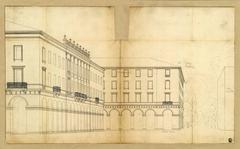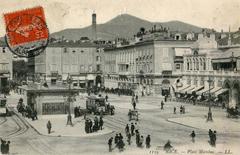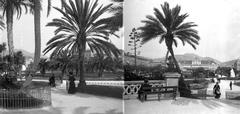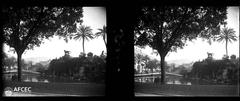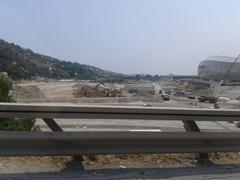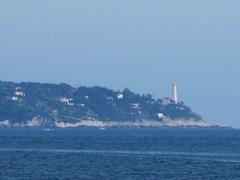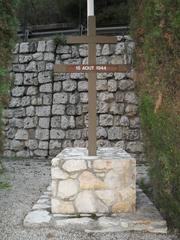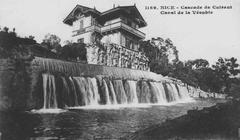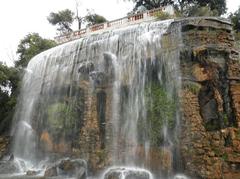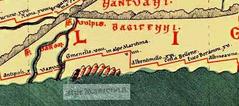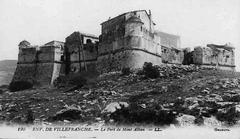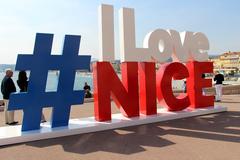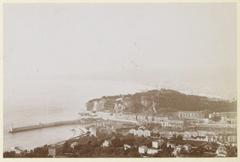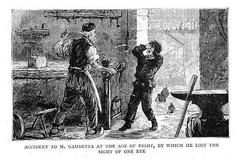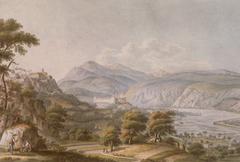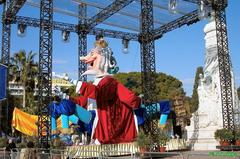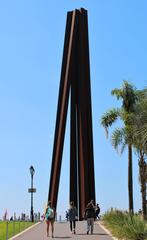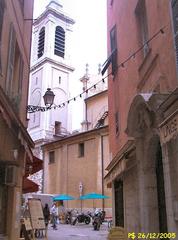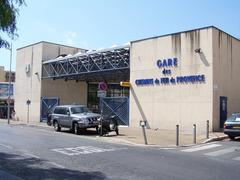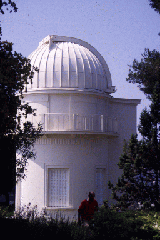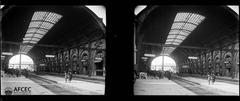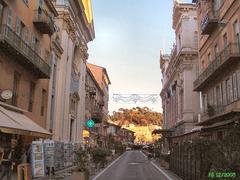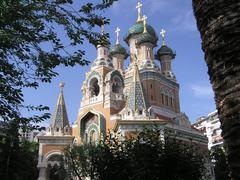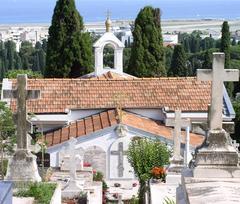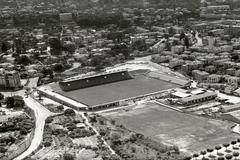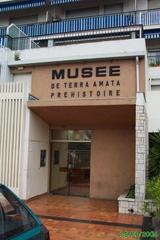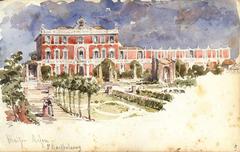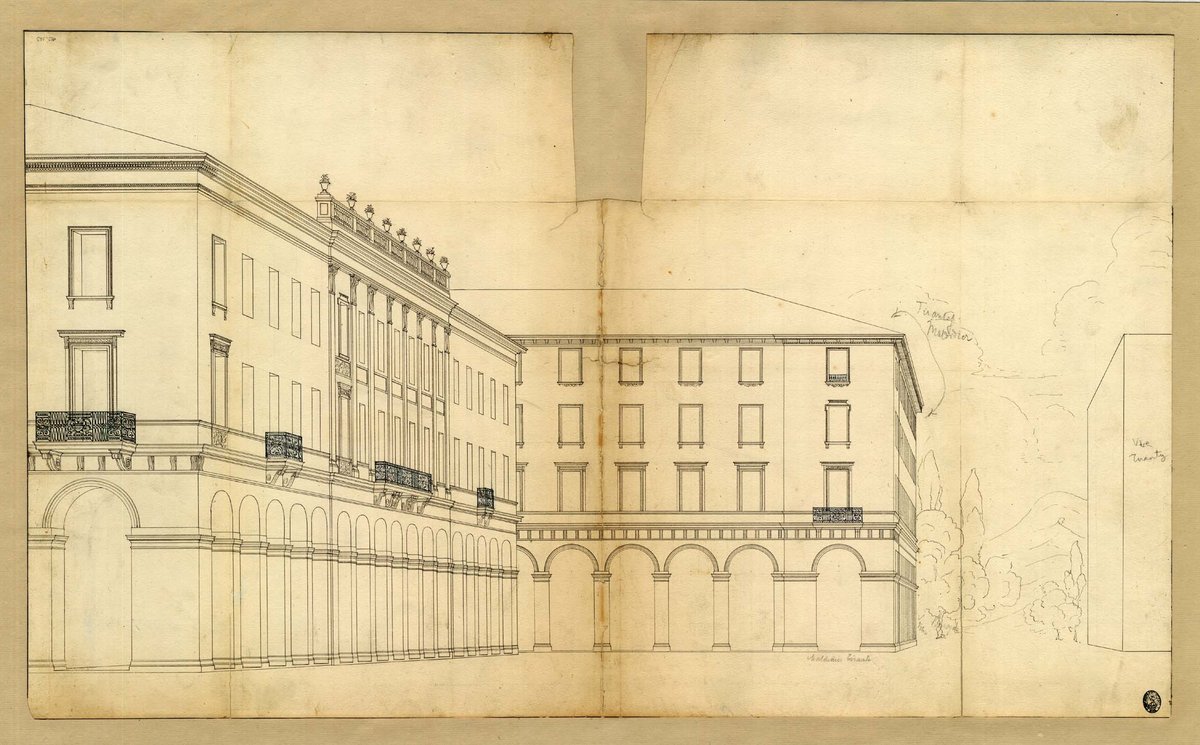
Visiting Guide to Place Masséna in Nice, France
Publication Date: 18/08/2024
Introduction
Place Masséna stands as the iconic heart of Nice, France—a public square where history, art, and everyday life converge on the French Riviera. Named for André Masséna, a celebrated military commander of the French Revolution and Napoleonic Wars, the square embodies the city’s blend of French and Italian influences, vibrant social life, and architectural grandeur. With roots stretching back to the 18th century, Place Masséna is not only a masterpiece of urban design but also a lively hub that hosts major cultural events throughout the year, including the famed Nice Carnival and Jazz Festival. This guide provides a detailed overview of Place Masséna’s history, architectural highlights, visitor essentials, nearby attractions, and tips to help you make the most of your visit (Visit The French Riviera, Wikipedia, French Riviera Travel).
Contents
- Introduction
- Historical Background
- Origins and Early Development
- Architectural Evolution
- Fontaine du Soleil and Public Art
- Visiting Place Masséna
- Hours, Admission, and Accessibility
- Getting There
- Visitor Tips
- Key Attractions & Nearby Sights
- Events and Festivals
- Shopping, Dining & Nightlife
- Frequently Asked Questions (FAQ)
- Summary and Final Thoughts
- Sources
Historical Background
Origins and Early Development
Place Masséna was conceived in the 18th century when Nice was part of the Duchy of Savoy, reflecting the Italianate influence evident in its neoclassical architecture (Visit The French Riviera). The square’s initial design was by Joseph Vernier in the mid-19th century. Its layout was unified after the Paillon River, which once divided the area, was covered in the 1860s—a significant urban transformation that coincided with Nice’s annexation to France (Wikipedia).
Architectural Evolution
The square’s distinctive red ochre facades, pastel green shutters, and elegant arcades are hallmarks of its Italian heritage (Emily Trip). Giuseppe Vernier, an architect from Turin, played a crucial role in achieving the square’s harmonious appearance in the 1850s. The checkerboard pavement and precise spacing of the arcades create a visually unified and inviting public space (Côte d’Azur Guide).
Fontaine du Soleil and Public Art
At the southern end, the Fontaine du Soleil (Fountain of the Sun), designed by Alfred Janniot, features a monumental statue of Apollo surrounded by representations of the five planets: Earth, Mars, Venus, Mercury, and Saturn. This spectacular fountain symbolizes both ancient mythology and Enlightenment ideals (French Riviera Travel).
Complementing the fountain, seven illuminated statues by Spanish artist Jaume Plensa represent the seven continents. These figures, glowing in various colors at night, reflect the themes of communication and unity among the world’s communities (Explore Nice Côte d’Azur).
Visiting Place Masséna
Hours, Admission, and Accessibility
- Hours: The square is open to the public 24/7.
- Admission: Free access; no tickets required for entry. Some special events or guided tours may require advance booking or tickets (Wikipedia).
- Accessibility: Place Masséna is designed for universal access, with flat, broad pavements, ramps, and public transport links suitable for all visitors, including those with mobility challenges.
Getting There
- Tram: The T1 tram line stops at Place Masséna, running on battery power as it crosses the square to preserve its pedestrian-friendly atmosphere (French Riviera Travel).
- Bus: Multiple city bus routes stop nearby.
- Walking: The square is an easy walk from the Promenade des Anglais, Old Town (Vieux Nice), and the city center.
- Car: Several underground car parks are located near the square, though parking can be limited during busy periods.
Visitor Tips
- Best Time to Visit: Aim for spring (April–June) or fall (September–October) to avoid summer crowds and enjoy mild weather.
- What to Bring: Comfortable footwear, a camera, and water (especially in summer).
- Safety: Watch out for pickpockets and be alert to passing trams that traverse the pedestrian space.
Key Attractions & Nearby Sights
- Fontaine du Soleil: The striking fountain and Apollo statue are central photo opportunities, marked by their artistic and symbolic significance (French Riviera Travel).
- Promenade du Paillon: A lush, landscaped promenade with playgrounds, water features, and sculptures, built above the covered Paillon River (French Riviera Travel).
- Water Mirror (Miroir d’eau): An interactive fountain popular with families and children, providing refreshing play and striking reflections.
- Jardin Albert I: One of Nice’s oldest public gardens, offering green space, statues, and an amphitheater for concerts and events (French Riviera Travel).
- Promenade des Anglais: The world-famous seafront promenade is just steps away and ideal for a scenic walk along the Mediterranean (Gems Travel).
- Old Town (Vieux Nice): Explore colorful markets, the Cathédrale Sainte-Réparate, and winding streets lined with shops and cafes (Gems Travel).
Events and Festivals
- Nice Carnival: Every February, Place Masséna becomes the epicenter for spectacular parades and festivities (French Riviera Travel).
- Nice Jazz Festival: Held in July, attracting top international artists (Visit The French Riviera).
- Fête de la Musique: Free music events citywide on June 21st.
- Bastille Day Parade: National celebrations with processions and fireworks on July 14th.
Shopping, Dining & Nightlife
- Shopping: The square is adjacent to Avenue Jean Médecin—Nice’s main shopping avenue—with boutiques, local shops, and the renowned Galeries Lafayette department store (Explore Nice Côte d’Azur).
- Dining: Dozens of cafés and restaurants surround the square and nearby streets, offering everything from Provençal specialties to international cuisine.
- Nightlife: After dark, Place Masséna is beautifully illuminated, and the surrounding area buzzes with bars, street artists, and live performances (Côte d’Azur Guide).
Frequently Asked Questions (FAQ)
What are the visiting hours for Place Masséna?
The square is open 24/7, with free public access.
Is Place Masséna wheelchair accessible?
Yes, the area is flat and accessible, with adapted public transport options.
Are there entrance fees?
No, visiting Place Masséna is free. Certain events or guided tours may require tickets.
What is the easiest way to get there from the airport?
The tram and bus services provide direct connections from Nice Côte d’Azur Airport.
Are guided tours available?
Yes, guided tours of Place Masséna and surrounding attractions can be booked through the Nice tourism office.
Summary and Final Thoughts
Place Masséna is much more than a city square—it’s a symbol of Nice’s rich history, architectural beauty, and vibrant community life. From its neoclassical facades and iconic fountains to the bustling events and proximity to Old Town and the Promenade des Anglais, Place Masséna promises a memorable experience for every visitor. Be sure to consult the official Nice tourism website for event updates and additional tips, and consider downloading the Audiala mobile app for on-the-go travel insights (Visit The French Riviera).
